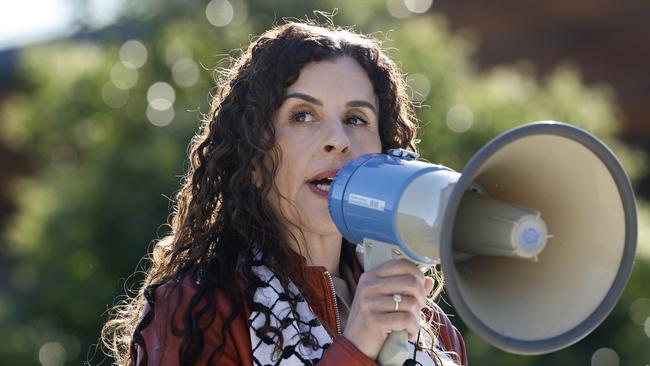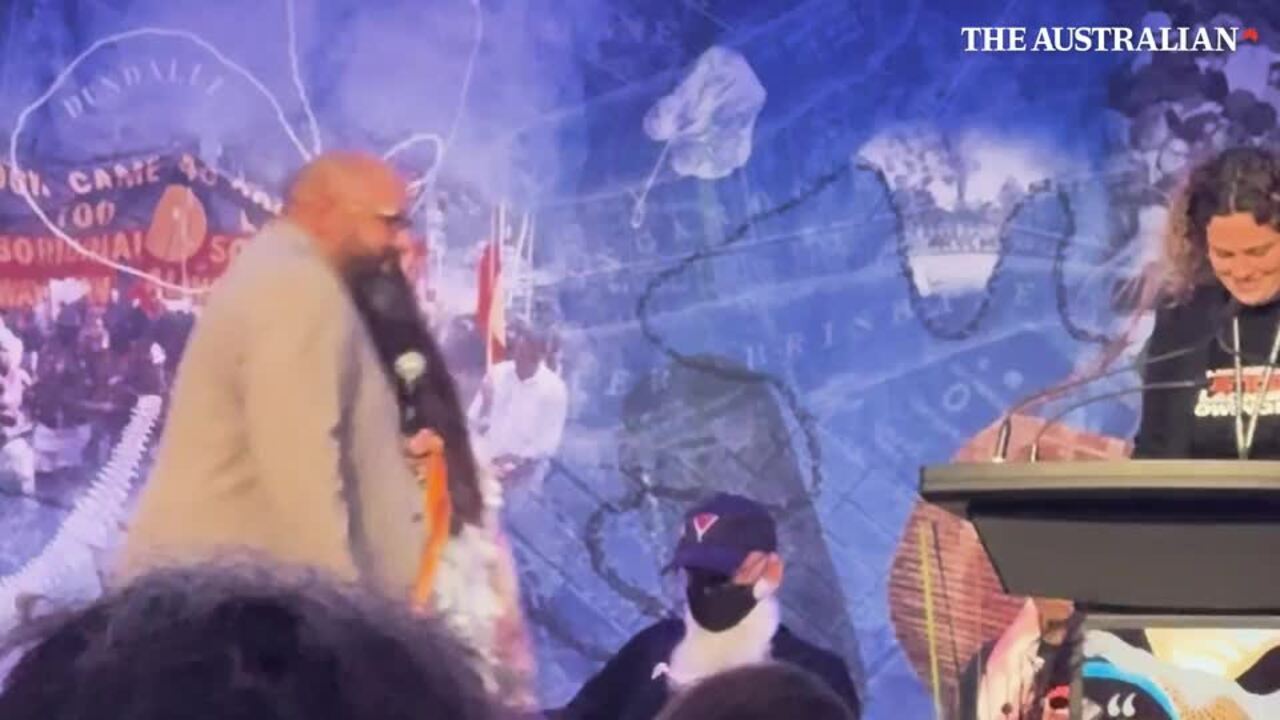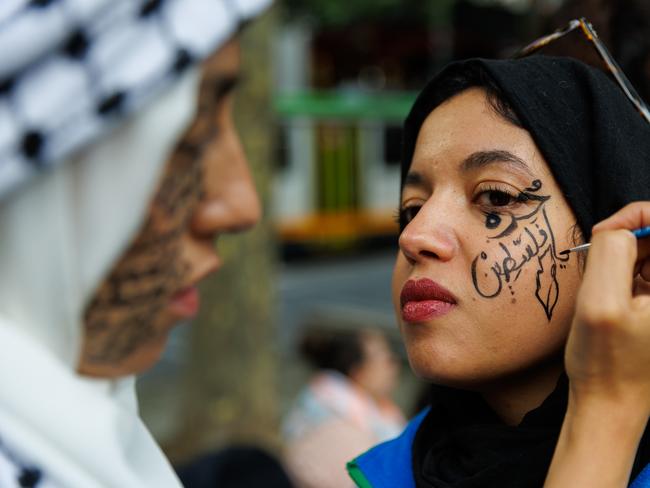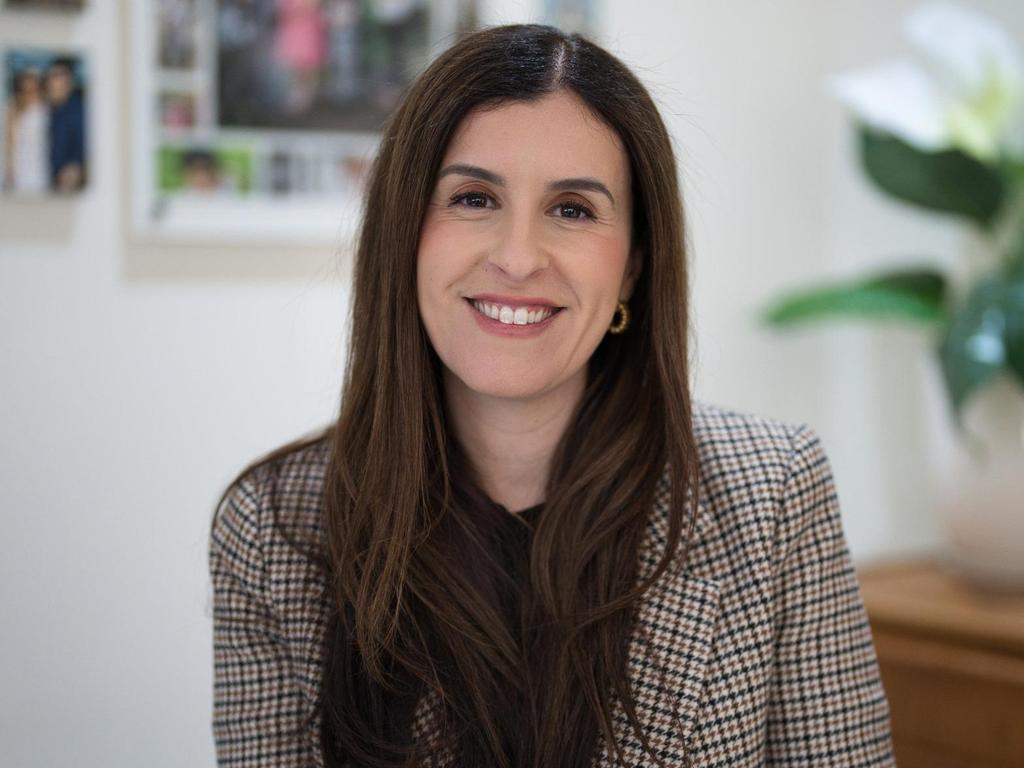
More than 300 angry academics signed an open letter this week complaining of “political repression” over the Australian Research Council’s long-overdue review of an $870,000 grant to Macquarie University staff member Randa Abdel-Fattah.
What they fail to comprehend is that the ARC is not trying to muzzle academic freedom; it is checking that taxpayers’ money is being spent in line with grant guidelines that rightly require rigour in publicly funded research.
Abdel-Fattah showed off her self-professed contempt for some of the basic tenets of academic research in her speech to a controversial symposium staged by the Queensland University of Technology in Brisbane last month. In a closed-door address to QUT’s National Symposium on Unifying Anti-Racist Research and Action, she railed against “white supremacists and pseudo-intellectuals” in a “totally rotten” academia, boasted how she “bends the rules” and revealed that she had refused an ARC requirement to hold a conference.

Instead, in an eyebrow-raising exercise she later crowed was her “best work”, the doctor of philosophy asked women to send her protest slogans and chants that were printed on coloured paper, cut into pieces and put into jars. As she gleefully told her audience, it was just like “being in primary school”.
Provocatively, Abdel-Fattah spelled out how she censored other academics who disagreed with her views. “I refuse to cite anybody who has remained silent over Gaza, no matter how authoritative and big they are in their respective fields,” she said. “If they have remained silent, they are not scholars to me, they are not thinkers, they are deficient human beings. I will not participate in validating them.”
Imagine if medical scientists took the same approach to their research. Could a cancer researcher collect quips from chemotherapy patients and place them in a jar tied with a pretty ribbon? What if a scientist investigating the safest engineering standards for building bridges chose to veto the findings of every engineer who refused to sign a Gaza petition?
The ARC approved 1000 research projects for grants worth $718m last year. More than 80 per cent of applicants missed out and the lion’s share of money went to engineering and science research.
Some of the funded projects are potentially lifesaving: a smartphone tool to detect ocean rips; a study of traditional Aboriginal burning practices to prevent wildfires; and computer simulation of the brain and skull to assist neurosurgeons.
Abdel-Fattah is the lead investigator for an $870,000 grant, awarded to Macquarie University in 2023 to research the history of Arab and Muslim Australians’ social projects since the 1970s. In 2018, the ARC had given her $322,213 to “explore issues of trust relations, political consciousness and fears among Muslim and non-Muslim youth in Australia”.
ARC rules require grant recipients to spend 80 per cent of their working hours on research.
Apart from lecturing at Macquarie University, Abdel-Fattah has somehow managed also to write five books since receiving her first grant in 2018. Her award-winning children’s book, 11 Words for Love, does not happen to include intifada, the Arabic word she used in a controversial chant with young children at a University of Sydney protest last year. Literally translated as “uprising”, it is a word more commonly associated with terrorist attacks on Israel.
Just days after Hamas terrorists used parachutes to invade Israel and murder, rape or kidnap more than 1200 Israelis – including babies, the elderly and young women at a music festival – on October 7, 2023, the profile picture on Abdel-Fattah’s Facebook page was changed to a paratrooper in the colours of the Palestinian flag.

A day after Christmas in 2024, her X account – which describes her as a “Future Fellow in Sociology researching Arab & Muslim social justice movements” – posted: “May 2025 be the end of Israel.” QUT’s conference organisers were so impressed with her bile-filled tweets that they gave her an award for “innovatively using social media as an anti-racist strategy in 2024”.
Federal Education Minister Jason Clare relinquished his ministerial veto over ARC grants last year, save for cases of national security. Yet he was so concerned about Abdel-Fattah’s own description of her work that he wrote to the ARC board, asking it to review the grant.
Alas, Abdel-Fattah is hardly the only academic to celebrate publicly the murderous regime of Hamas, which the Australian government has classified as a terrorist organisation. QUT invited Tasnim Mahmoud Sammak, in her capacity as a PhD student at Monash University, to its anti-racism symposium, which she used as a platform to spout her hatred of Israel. Guest speakers were asked to talk about an “anti-racist practice you’ve been involved in that’s innovative or exciting or inspiring”. As a former Islamic school teacher, now working as a teaching assistant at Monash, Sammak might have discussed ways to promote multicultural understanding and respect between students.

Hell no. Her idea of an exciting and inspiring anti-racist activity was the October 7 Hamas terror attacks, which she described as a “mass uprising”. “If we’re talking about an example of anti-racist practice, I would say that that was an attempt from the people of Gaza to liberate themselves,” she told the QUT audience. “It’s not Hamas holding the people of Gaza captive, it’s the people of Gaza who Hamas is representative of who decided to break out of the siege of Gaza, the prison, the concentration camp of Gaza.” Where is the research-based factual evidence for her assertion? Did she survey the innocent children of Gaza, who dodge bombs and face death daily because the Hamas monsters controlling their country provoked a war with Israel?
Gaza and the West Bank haven’t held a democratic election in about 19 years, and Sammak told her audience she had never set foot in Gaza.
Academic freedom is not a free pass for ignorant hate speech. Federal legislation defines academic freedom as “the freedom of academic staff to teach, discuss, and research and to disseminate and publish the results of their research”. Academic staff and students also have the freedom to “engage in intellectual inquiry, to express their opinions and beliefs, and to contribute to public debate, in relation to their subjects of study and research”. But academics must also abide by rules regarding student welfare and safety, hate speech and racial discrimination.
Decency and common sense also would be useful. Hate speech against Zionism and Israel is stoking anti-Semitic attacks against Jewish Australians. Those who call for the destruction of the Jewish state of Israel can no longer hide behind the technicality that they are not anti-Semitic.
Australians have watched in horror, outrage and despair at the firebombing of a childcare centre near a Jewish school in Sydney, the razing of a Jewish synagogue in Melbourne, and the discovery of a list of Jewish targets in a caravan packed with enough explosives to destroy everything in a 40m radius. Now two Sydney hospital nurses have been filmed boasting how they had killed, and would continue to murder, Israeli patients.
The federal Parliamentary Joint Committee on Human Rights reported on Wednesday that it had witnessed “brazen incidents of anti-Semitism go without consequence or leadership by some of our university vice-chancellors”. These million-dollar boffins must take responsibility for setting – and enforcing – clear boundaries for rigorous and respectful academic research, behaviour and debate. The purpose of universities is research and education – not polemics and indoctrination.






Radical activists are cloaking themselves in “academic freedom” so they can tap taxpayers for a paid platform for their “anti-colonial” polemics.